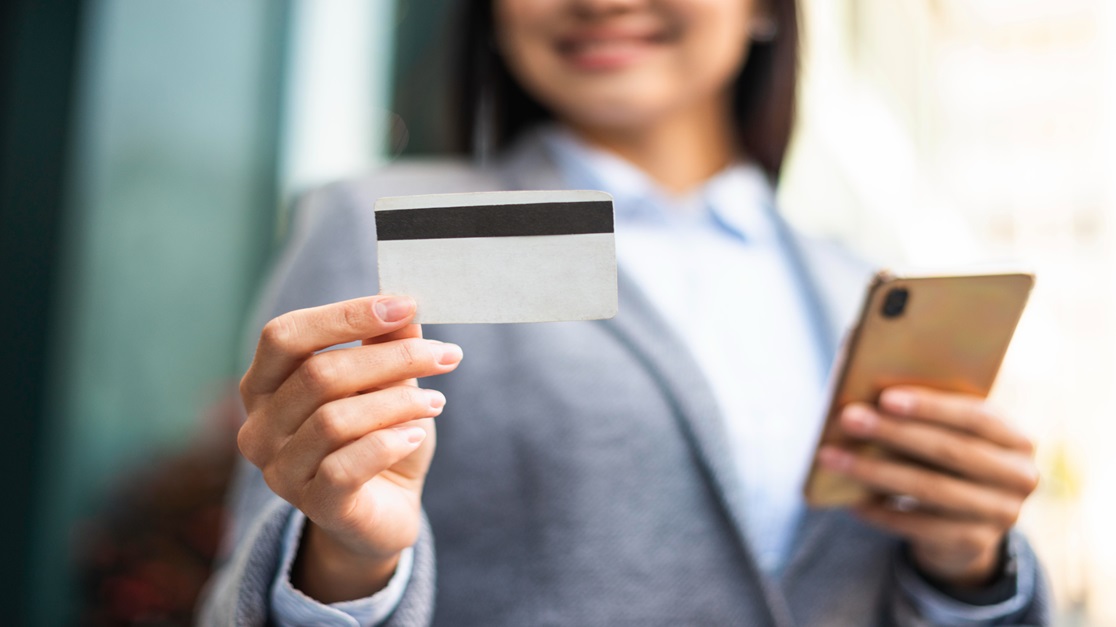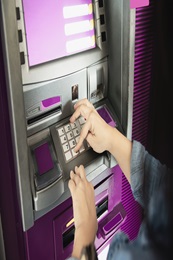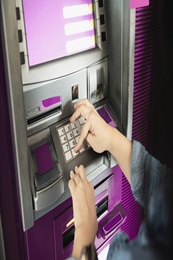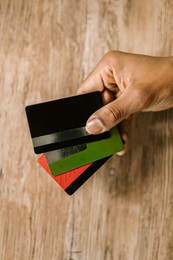What is the Difference Between Debit Card PIN and CVV Number?
January 16, 2025

Imagine you're shopping online for a new pair of shoes. You find the perfect pair, add them to your cart, and proceed to checkout. You reach for your debit card, ready to make the payment, but the website asks for your CVV number. Later, at an ATM, you're prompted to enter your PIN. You pause. What exactly is a CVV, and how is it different from your PIN? Let's unravel this puzzle.
What is a Debit Card PIN?
A Personal Identification Number (PIN) is a 4 to 6-digit code that you set up when you receive your debit card. It is used to authenticate transactions at ATMs and Point-of-Sale (POS) terminals. Without entering the correct PIN, you cannot complete cash withdrawals or in-store purchases.
What is CVV?
The CVV, or Card Verification Value, is a 3-digit security code located on the back of your debit card. For Visa, RuPay and MasterCard users, it's the last three digits on the signature strip. For American Express, it's a 4-digit code on the front. The CVV is an extra layer of security designed to protect your card from unauthorized use, especially during online and card-not-present transactions.
Key Differences Between CVV and PIN
| Feature | CVV | PIN |
| Purpose | Prevents unauthorized online transactions | Authenticates in-person transactions |
| Visibility | Printed on the back of the card | Memorized, not visible on the card |
| Functionality | Used for online purchases | Used for ATM withdrawals and POS payments |
| Security Role | Verifies online transactions | Authorizes physical transactions |
How to Safely Use Your Debit Card PIN and CVV
Protecting Your PIN:
- Never share your PIN with anyone, not even bank representatives.
- Avoid writing your PIN down or storing it on your phone.
- Use ATMs and POS terminals in well-lit, secure locations.
- Cover the keypad when entering your PIN to prevent shoulder surfing.
- Change your PIN regularly and avoid using easily guessable numbers like birthdates.
Protecting Your CVV:
- Never share your CVV with anyone over calls, emails, or text messages.
- Avoid saving your card details, including the CVV, on online shopping websites.
- Ensure you only enter your card details on secure websites (look for HTTPS in the URL).
- Regularly check your bank statements for any unauthorized transactions.
- Enable transaction alerts via SMS or email to stay updated on your account activity.
Why Both CVV and PIN Matter
The CVV acts like a secret handshake for online transactions, while the PIN serves as a gatekeeper for in-person payments and ATM withdrawals. Together, they form a comprehensive security system to protect your money.
Final Thoughts
While the CVV safeguards your debit card for online purchases, the PIN secures your in-person transactions. Understanding the difference empowers you to use your card securely and responsibly. So, whether you're shopping online or withdrawing cash, remember both codes play vital roles in keeping your money safe.
Ujjivan Small Finance Bank offers RuPay Debit Cards – debit cards that are designed to meet your unique requirements. Use RuPay Select, Classic and Platinum cards based on the Savings Account you have. Enjoy discounts and offers on your favourite brands and exclusive privileges with our Debit Cards.
Disclaimer:
The contents herein are only for informational purposes and generic in nature. The content does not amount to an offer, invitation or solicitation of any kind to buy or sell, and are not intended to create any legal rights or obligations. This information is subject to updation, completion, amendment and verification without notice. The contents herein are also subject to other product-specific terms and conditions, as well as any applicable third-party terms and conditions, for which Ujjivan Small Finance Bank assumes no responsibility or liability.
Nothing contained herein is intended to constitute financial, investment, legal, tax, or any other professional advice or opinion. Please obtain professional advice before making investment or any other decisions. Any investment decisions that may be made by the you shall be at your own sole discretion, independent analysis and evaluation of the risks involved. The use of any information set out in this document is entirely at the user’s own risk. Ujjivan Small Finance Bank Limited makes no representation or warranty, express or implied, as to the accuracy and completeness for any information herein. The Bank disclaims any and all liability for any loss or damage (direct, indirect, consequential, or otherwise) incurred by you due to use of or due to investment, product application decisions made by you on the basis of the contents herein. While the information is prepared in good faith from sources deemed reliable (including public sources), the Bank disclaims any liability with respect to accuracy of information or any error or omission or any loss or damage incurred by anyone in reliance on the contents herein, in any manner whatsoever.
To know more about Ujjivan Small Finance Bank Products Visit:"https://www.ujjivansfb.in"
All intellectual property rights, including copyrights, trademarks, and other proprietary rights, pertaining to the content and materials displayed herein, belong
to Ujjivan Small Finance Bank Limited or its licensors. Unauthorised use or misuse of any intellectual property, or other content displayed herein is strictly prohibited and the same is not intended for distribution to, or use by, any person in any jurisdiction where such distribution or use would (by reason of that person’s nationality, residence or otherwise) be contrary to law or registration or would subject Ujjivan Small Finance Bank Limited or its affiliates to any licensing or registration requirements.
FAQs
1. What happens if I share my CVV number with someone?
Sharing your CVV can expose you to fraud. Anyone with your card number and CVV can make unauthorized online purchases. Always keep your CVV confidential.
2. Can I use my debit card without a PIN?
You can use your debit card for online purchases without a PIN, but in-store purchases and ATM withdrawals require the correct PIN for authorization.
3. Is CVV required for ATM withdrawals?
No, ATM withdrawals require your debit card and PIN. The CVV is only used for online or card-not-present transactions.
4. Can I use my debit card online without a CVV?
Most online platforms require the CVV to process payments. Some platforms may store your details, but initial transactions usually need the CVV.
5. How can I protect my debit card PIN from fraud?
Never share your PIN, avoid writing it down, and cover the keypad when entering it at ATMs or POS terminals.
6. What should I do if I forget my debit card PIN?
Contact your bank immediately. They will guide you through resetting your PIN through their secure process.
7. Can someone misuse my debit card without the PIN?
Without the PIN, misuse in physical stores or ATMs is difficult. However, online fraud can occur if the CVV and card details are compromised.
8. Is it safe to save my CVV online?
It's safer not to save your CVV on websites. If necessary, use trusted sites with strong security protocols.
9. Can I change my debit card PIN?
Yes, you can change your PIN at an ATM or through your bank's mobile app or net banking service for better security.
10. Does the CVV or PIN expire?
The CVV changes when you get a new debit card. The PIN does not expire but should be updated regularly for security.
Latest Blogs

Dussehra 2025: How to Win Your Financial Battles with Smart Saving
Dussehra 2025 (also known as Vijayadashami) falls on Thursday, October 2, 2025.

eSIM Scam in India: I4C Warns Mobile Users About Rising Fraud – How to Stay Safe
The Indian Cybercrime Coordination Centre (I4C), a wing of the Ministry of Home Affairs, issued a strong warning to mobile users about the rapid increase in eSIM fraud in India.

How to Link PAN with Aadhaar: Step-by-Step Guide & Consequences of Not Linking
Linking your Permanent Account Number (PAN) with your Aadhaar is no longer just a best practice.

Annual Information Statement (AIS): A Complete Guide for Stress-Free ITR Filing
India’s tax season is in its final stretch.

ITR-1 (Sahaj) Restrictions: Income Sources Not Allowed & Filing Rules
With just a few days left before the 15 September 2025 deadline for filing Income Tax Returns (ITRs) for Assessment Year (AY) 2025-26, many taxpayers are rushing to submit their forms online.





